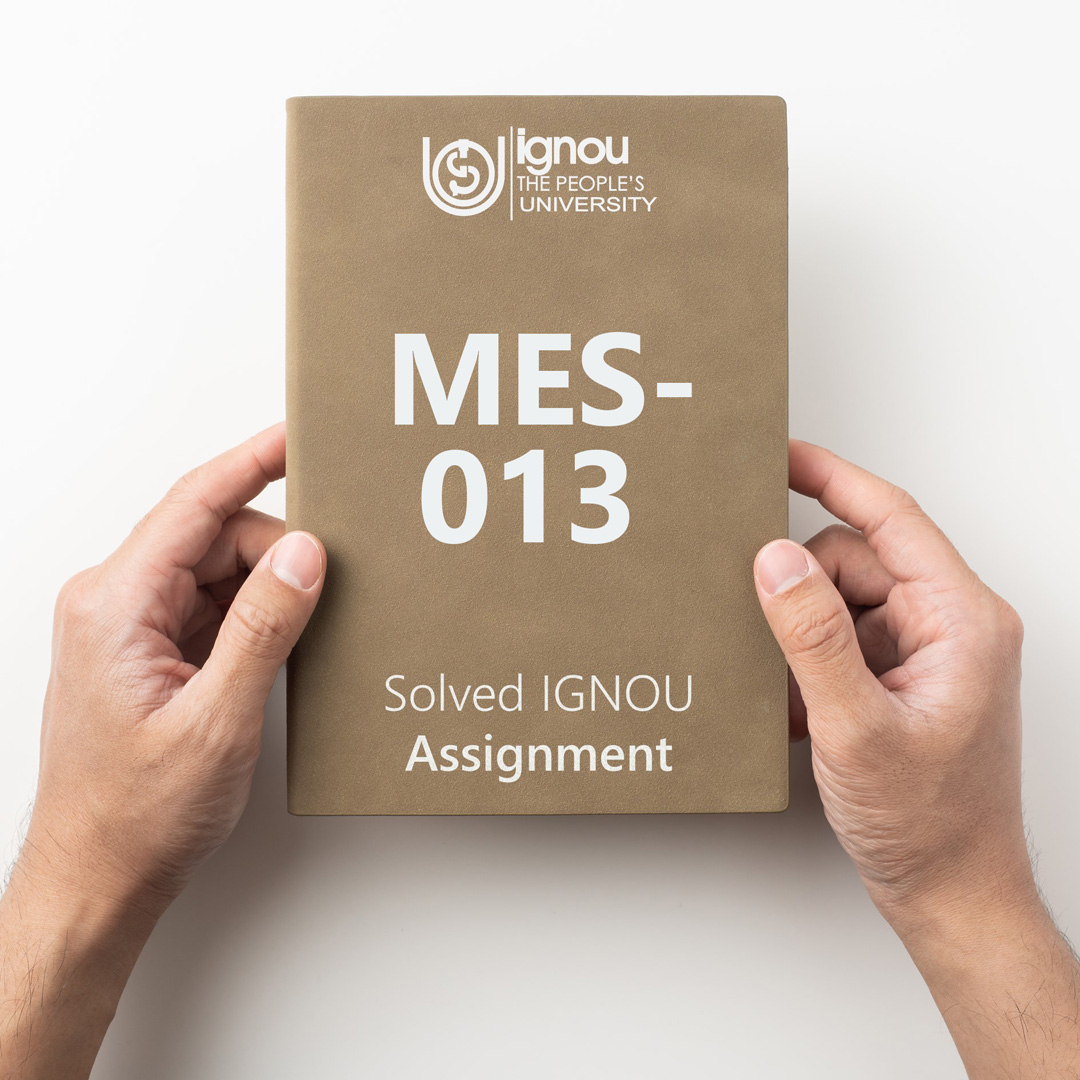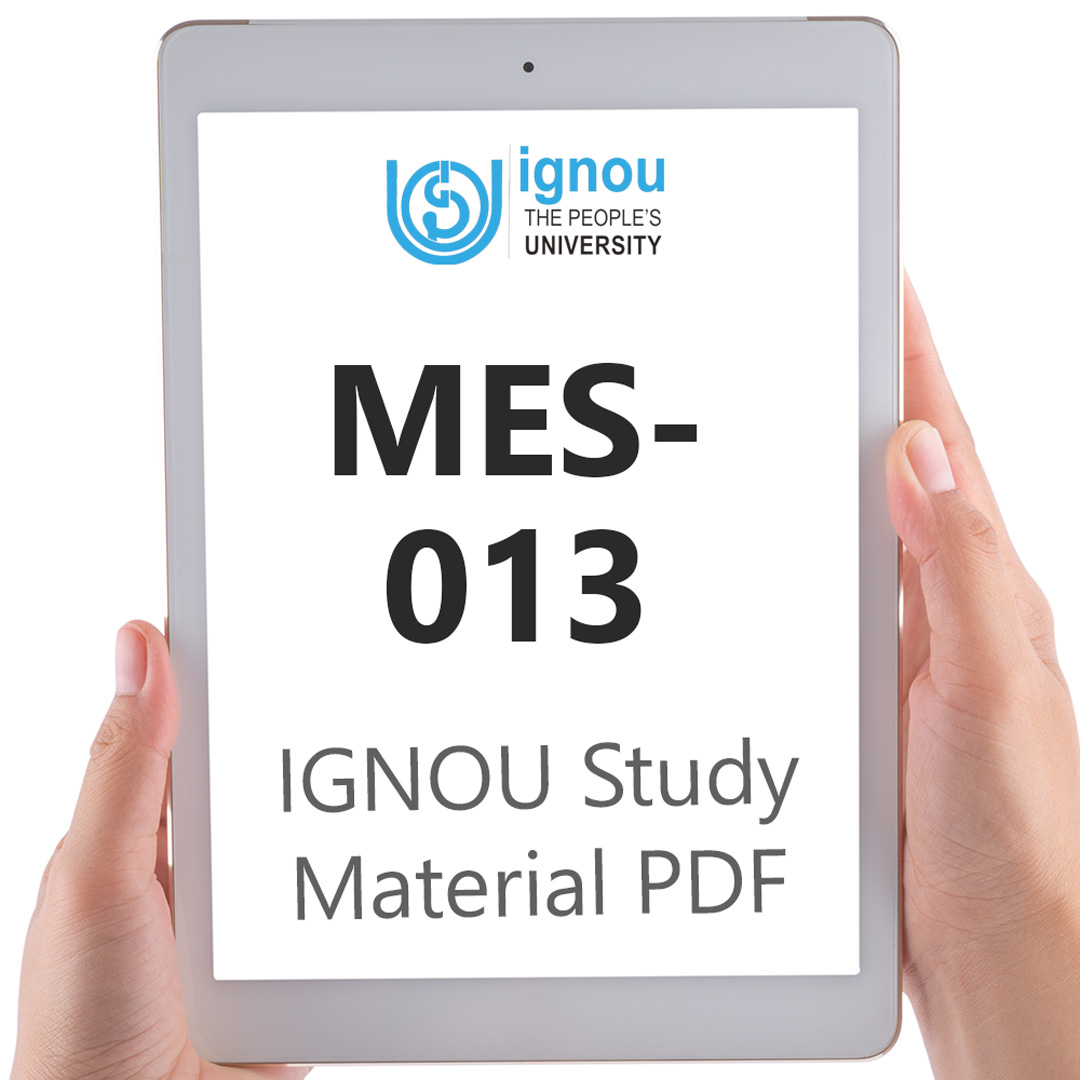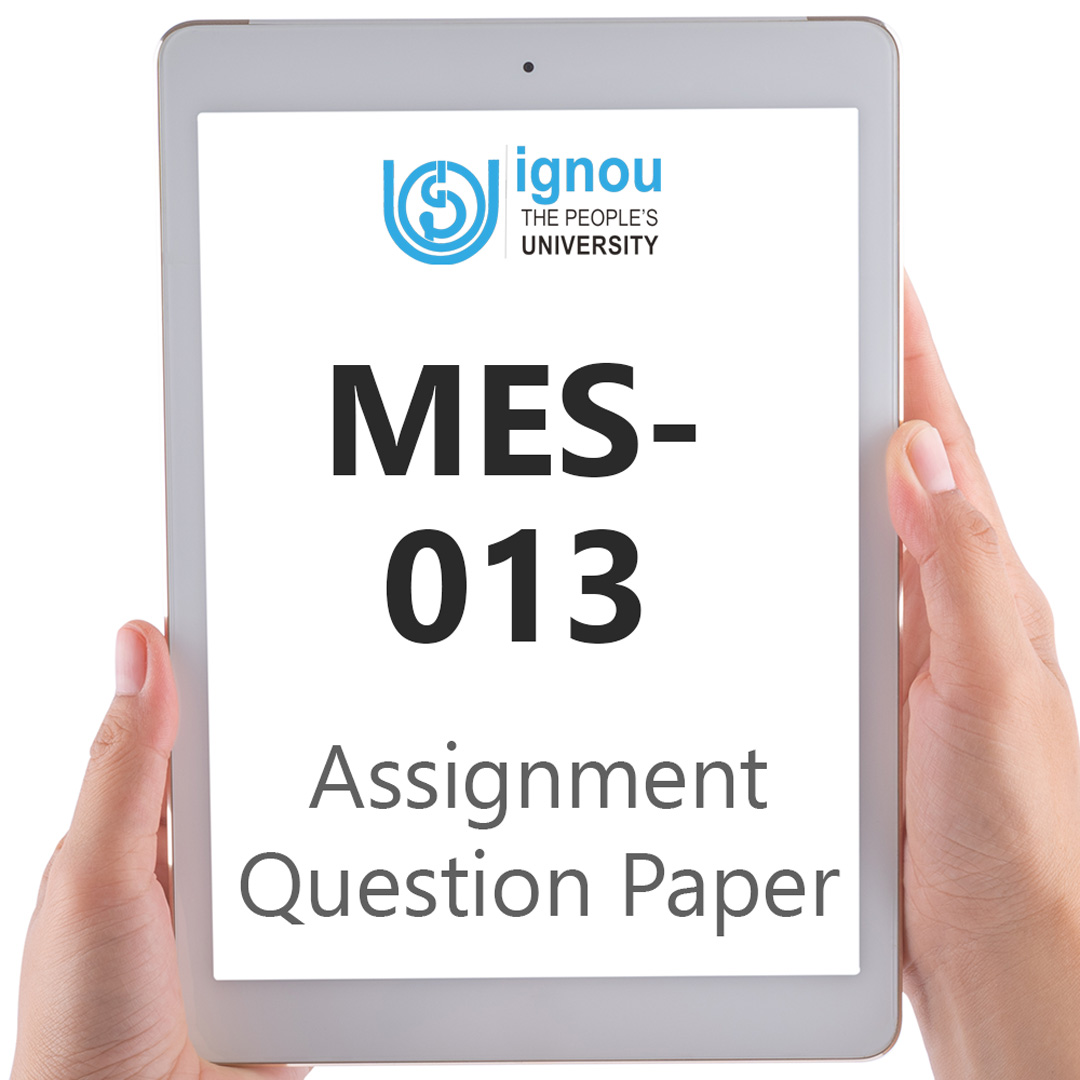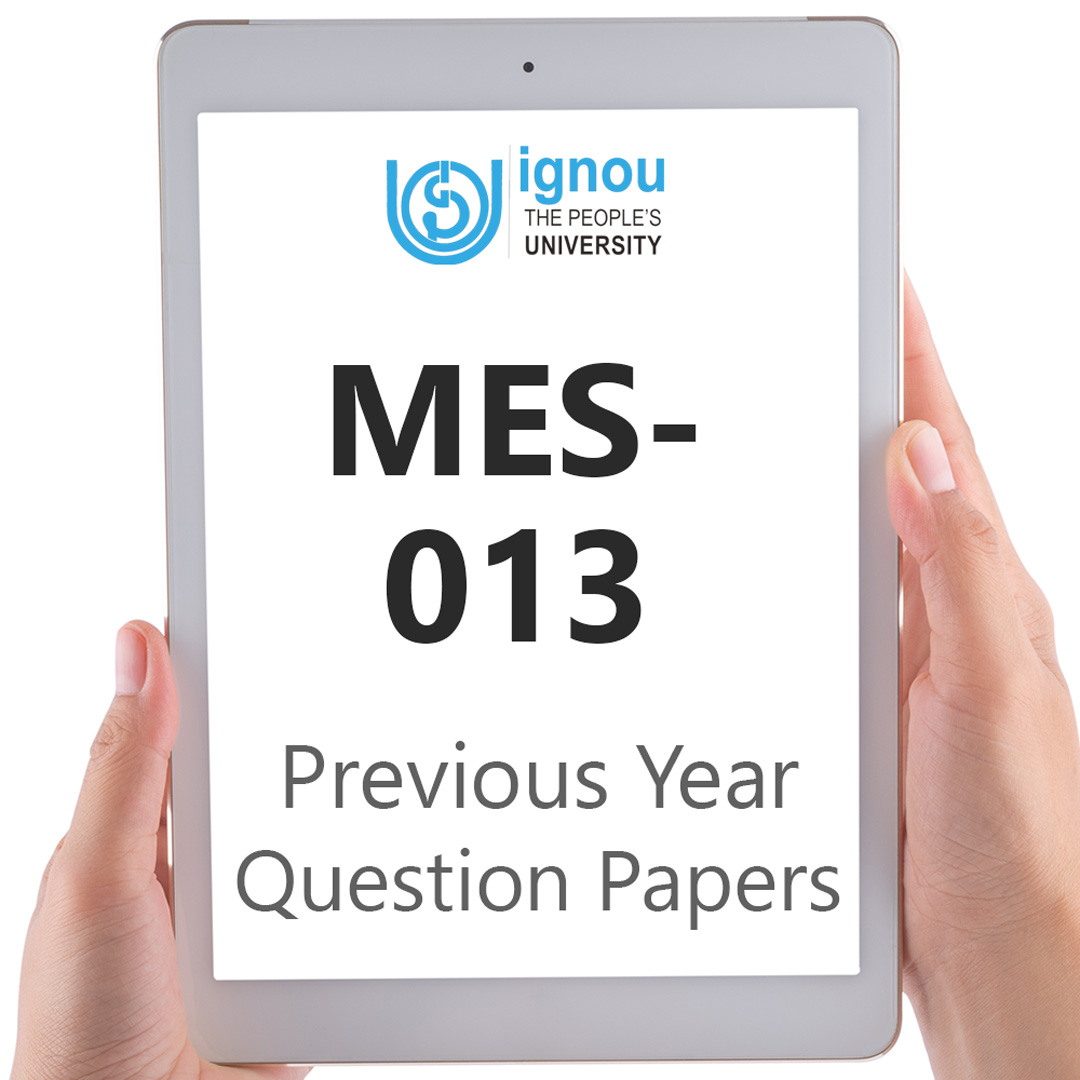If you are looking for MES-013 IGNOU Solved Assignment solution for the subject Learning, Learner and Development, you have come to the right place. MES-013 solution on this page applies to 2023 session students studying in MAEDU courses of IGNOU.
MES-013 Solved Assignment Solution by Gyaniversity
Assignment Code: MES-013/TMA/2023
Course Code: MES-013
Assignment Name: Learning, Learner and Development
Year: 2023
Verification Status: Verified by Professor
a) Discuss Vygotsky’s socio-cultural perspective in learning and its educational implications. (500 words)
Ans) Vygotsky’s socio-cultural perspective is a theoretical framework for understanding how social and cultural factors influence human development and learning. According to Vygotsky, learning is a social process that occurs through interaction with more knowledgeable others, who provide guidance and support to the learner. This perspective has significant implications for education, as it suggests that the most effective way to facilitate learning is through collaboration and interaction with others.
The idea of a "Zone of Proximal Development" is an essential component of Vygotsky's theory of cognitive development (ZPD). The zero-point-difference, or ZPD, is the difference between what a learner is capable of doing on their own and what they are capable of doing with the assistance of someone who is more knowledgeable. Vygotsky held the belief that learning occurs most successfully when a student is provided with activities that are just beyond their current level of ability, but which the learner can do with the supervision and help of a teacher or peer.
The ZPD has important repercussions that will be seen in the educational sector. In order for teachers to properly scaffold students' educational experiences and give the right level of support, they need to have a solid understanding of their students' unique skills and requirements. This necessitates not just an in-depth awareness of the individual strengths, weaknesses, and learning styles of each student, but also the capacity to personalise education to match the specific requirements of each pupil.
The concept that learning is dependent on one's cultural surroundings and is culturally situated is another essential component of Vygotsky's socio-cultural worldview. This indicates that the social and cultural environment in which learning takes place has an effect on the learning process. For instance, the cultural upbringing and life experiences of a student might play a role in the formation of their comprehension of particular ideas and the manner in which they approach educational endeavours.
This has significant repercussions for the field of education, since it implies that instructors are required to be sensitive to different cultures and aware of the varied experiences and backgrounds of their students. Incorporating content that is culturally relevant into the curriculum, encouraging students to contribute their own cultural experiences and points of view, and working to create a safe and inclusive learning environment are all potential steps that might be taken to accomplish this goal.
Finally, Vygotsky’s theory emphasizes the importance of collaborative learning and peer interactions. According to Vygotsky, social interaction is an essential aspect of learning, as it provides opportunities for students to share ideas, ask questions, and receive feedback from their peers. This can be facilitated through group work, classroom discussions, and other collaborative activities.
The implications of this aspect of Vygotsky’s theory for education are clear. Teachers must create opportunities for collaborative learning and foster an environment in which students feel comfortable sharing their ideas and perspectives. This may involve establishing ground rules for respectful communication, encouraging active listening and participation, and providing opportunities for students to work together in small groups or pairs.
In conclusion, Vygotsky’s socio-cultural perspective on learning has significant implications for education. Teachers must understand the individual needs and abilities of their students, be culturally responsive and attuned to the diverse backgrounds and experiences of their students, and create opportunities for collaborative learning and peer interaction. By doing so, teachers can facilitate effective learning and help their students achieve their full potential.
b) Discuss how class differences in socialization affect children’s learning. (500 words)
Ans) Children learn to get along with others through interacting with many adults, initially with their parents and family and then with community members. The infant learns by first recognising roles and then acting them out through language and all of these activities, which are all called "play" in a wide sense.
Language and play help children understand their world. Accepting tasks and duties as they grow up makes children more active in the world. Children select, choose, and try things in unique ways as they grow up and improve. The proce is loud and silent, and it doesn't stop when a child grows up, but it slows down as the youngster finds a place in the world that works for them. Children's learning and thinking habits are deeply rooted in family and community socialisation.
Varied families' socialisation methods lead to different structured learning experiences for their children. Middle-class families have more than poor families. They instruct their kids more and give them more developmental opportunities. However, poor families make it tougher for their children to grow and learn, which can lead to low self-esteem and social skills.
Beyond the community, each culture has different social norms. These range from simple and unthought-out to sophisticated and full, rigid to flexible, principled to opportunistic, kind and universal to strict and predatory. These influence a child's learning style, information processing, and skills. Thus, parental techniques, settings, challenges, and social and cultural environments all affect how young children learn.
We have also seen that some familial and social environments allow children to learn in a planned and organised fashion, while others do not. Middle class parents negotiate and explain with children because they share experiences, responsibilities, and work decisions. Working-class parents must follow commands at work. Authoritarian parents do not discuss, explain, or negotiate with their kids. However, there is no ideal family or social situation, and no ideal set of socialisation practises that can help children learn and thrive. It's also unwise to presume that most civilizations' social diversity is enough to help people learn. Many disadvantaged kids succeed in school. Family and community factors affect children's learning in context.
Parenting is socially influenced. Some parents have many talents and resources and can act as they see fit, whereas others have minimal resources and are influenced by others. Thus, to improve parenting for all children, societies must be reorganised and people must act in accordance with their values and respect for others. When parents don't value change or assisting others, efforts to do so look less effective. Parents' material, social, personal, economic, political, and cultural backgrounds vary. These variances affect how they raise their children from the start and affect their talents as they get older.
Income levels can affect how people raise their children. Education affects how various social classes nurture their children. Middle-class parents with higher education talk to their kids to keep them interested and allow them greater opportunity to explore. They explain, praise, and punish their older children. Talkative middle-class parents teach their kids to think for themselves. However, persistent stress breaks down poor families. Everyday challenges make parents depressed, angry, and distracted. Fighting couples typically neglect their children. Thus, the youngster struggles in school and acquires formal skills at a crucial age.
c) Explain the concept and nature of affective learning. Suggest strategies for selecting and organizing curricular experiences for developing affective learning in your learners. (500 words)
Ans) The term "affective learning" refers to the process of acquiring emotional and behavioural competencies, as well as knowledge and attitudes. The process of learning that involves the development of social and emotional skills such as empathy, self-awareness, self-regulation, and motivation, as well as the cultivation of positive attitudes and values such as respect, responsibility, and appreciation for diversity. It is a form of learning that involves the development of social and emotional skills.
Affective learning is vital for a number of reasons, including the fact that it plays a big part in the growth and well-being of individuals, as well as in their capacity to learn and achieve academic success. Affective learning can also assist students in becoming more engaged and motivated in their own learning, in cultivating meaningful relationships with others, and in maturing into responsible and caring members of their communities.
Some of the following are examples of strategies that can be used to choose and organise curricular experiences in order to foster affective learning in students:
Creating a Positive and Supportive Learning Environment: It is essential to provide a learning atmosphere that is secure, encouraging, and welcoming to people of all backgrounds. This can be accomplished by laying out specific guidelines and expectations, making room for possibilities for collaboration and teamwork, and cultivating an environment that values respect and understanding for others.
Incorporating Activities that Promote Social and Emotional Learning: Participating in activities that focus on social and emotional learning can assist students in the development of abilities such as empathy, self-awareness, and the ability to self-regulate. Participating in role-playing games, telling stories, practising mindfulness, and doing community service are all possible activities.
Promoting Positive Attitudes and Values: It is important to promote positive attitudes and values such as respect, responsibility, and appreciation for diversity. This can be achieved through discussions, debates, and projects that emphasize the importance of these values and how they can be applied in real-life situations.
Using Real-Life Examples and Experiences: Learners may better relate what they are learning in the classroom to the world outside of it and see how what they are studying can be put into practise with the assistance of real-world examples and experiences. This can be accomplished through activities such as site visits, discussions with outside experts, and case studies.
Encouraging Reflection and Self-assessment: Learners can benefit from becoming more self-aware through the processes of reflection and self-assessment, which can also help them acquire a deeper awareness of their own feelings, attitudes, and behaviours. Keeping a journal, participating in self-evaluation surveys, and having conversations that are reflective are all good ways to accomplish this.
Affective learning, in conclusion, is an essential component of the learning process that entails the growth of emotional and attitude-related skills, as well as information and behaviours. It is important to create a learning environment that is positive and supportive in order to develop affective learning in learners. In addition, it is important to incorporate activities that promote social and emotional learning, promote positive attitudes and values, use real-life examples and experiences, and encourage reflection and self-assessment. Learners can benefit from these tactics by being more engaged and motivated in their studies, developing positive connections with others, and becoming responsible and caring members of their communities.






